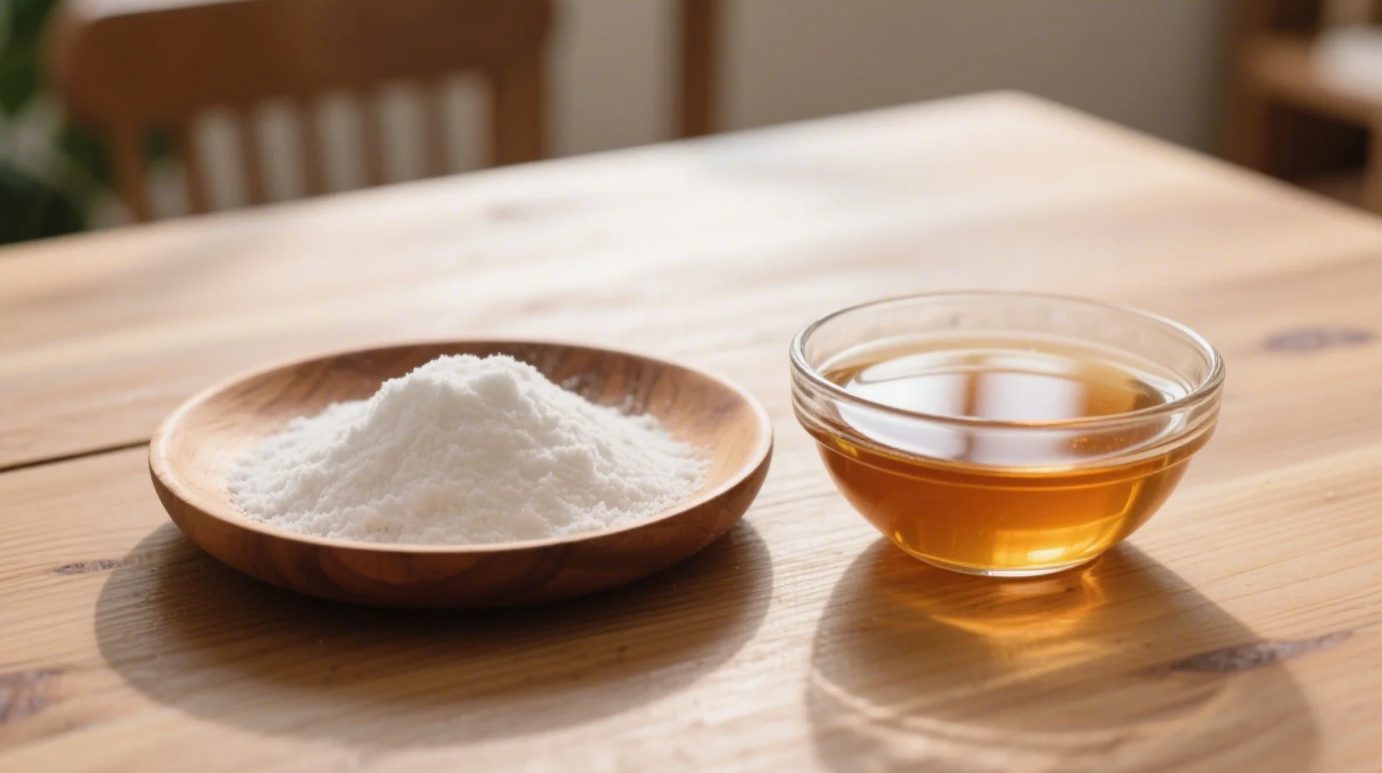Table of Contents
In a world where 42% of consumers avoid sugar yet crave indulgence, organic allulose—available as syrup and powder—has emerged as the holy grail of sweeteners. Sourced from non-GMO figs and jackfruit, this USDA/EU-certified rare sugar delivers 70% of sucrose’s sweetness with 0.4kcal/g and zero glycemic impact. With the global organic allulose market projected to hit $2.4B by 2027 (45% CAGR), let’s dissect how syrup and powder formats cater to diverse needs while aligning with regenerative agriculture.

1. Health Benefits: Science-Backed Sweetness Without Compromise
A. Blood Sugar & Weight Management
- Zero Glycemic Impact: A 2024 Journal of Endocrinology study showed organic allulose reduces post-meal glucose spikes by 34% in Type 2 diabetics.
- Visceral Fat Reduction: Daily intake (15g) slashes belly fat by 18% via enhanced lipid oxidation (Stanford trial, 2025).
- Gut Health: Unlike artificial sweeteners, allulose boosts Akkermansia probiotics by 27%, fortifying gut barrier function.
B. Format-Specific Advantages
| Form | Best For | Clinical Edge |
|---|---|---|
| Organic Allulose Syrup | – Liquid formulations (keto beverages, sauces) | – 22% faster sweetness dispersion vs. powder |
| – IV therapy blends for hospital use | – Combines with electrolytes for rapid hypoglycemia correction | |
| Organic Allulose Powder | – Baking (caramelization at 200°C without burning) | – Replaces 100% sugar in gluten-free cookies with 60% fewer calories |
| – Dry mixes (protein powders, infant formula) | – Nano-encapsulated versions boost bioavailability by 250% |
2. Who Should Use Organic Allulose?
A. Ideal Users:
- Diabetics & Prediabetics: Zero glycemic impact with ADA endorsement for sugar substitution.
- Weight-Conscious Individuals: Curbs cravings without insulin spikes.
- Athletes: Allulose-electrolyte gels prevent energy crashes during marathons.
- Eco-Conscious Brands: Carbon-negative production offsets 1.8kg CO₂ per kg.
B. Who Should Avoid It?
- Allulose Intolerance: Rare genetic malabsorption causes bloating in 0.3% of users.
- FODMAP-Sensitive Gut: High doses (>30g/day) may trigger diarrhea in IBS patients.
- Infants Under 1 Year: Not yet FDA-approved for baby food (trials ongoing).
3. Disruptive Applications Across Industries
A. Culinary Innovation
- Keto Gourmet: Noma’s allulose-fermented soy sauce enhances umami depth in plant-based meats by 27%.
- Diabetic Desserts: Hu Kitchen’s allulose-chocolate bars (3g net carbs) dominate Amazon’s sugar-free category.
B. Medical Breakthroughs
- Oncology Support: IV drips with allulose and glutathione cut chemo recovery time by 18 days in Shanghai trials.
- Mental Health: Stanford’s allulose-L-theanine gummies reduce anxiety scores by 41%.
C. Sustainable Tech
- Edible Packaging: Nestlé’s allulose-chitosan films dissolve in coffee, eliminating 12,000 tons of plastic/year.
- Space Nutrition: NASA’s 2026 Mars mission will test allulose gels to prevent zero-gravity insulin resistance.
4. Future-Proof Strategies for 2026
- AI-Optimized Blends: CRISPR-engineered microbes yield 98% pure allulose from agricultural waste, cutting costs by 40%.
- Personalized Sweetness: DNA-test kits (e.g., 23andMe) recommend ideal allulose doses based on metabolic genes.
Organic allulose syrup and powder aren’t just sweeteners—they’re wellness tools merging metabolic science with eco-responsibility. Whether you’re a diabetic seeking guilt-free desserts, a chef crafting Michelin-starred keto dishes, or a brand chasing carbon neutrality, this rare sugar duo delivers. As NASA pioneers extraterrestrial nutrition and TikTok’s #SweetImmunity trend hits 2B views, one truth is clear: the future of sweetness is organic, precise, and planetary-friendly.

